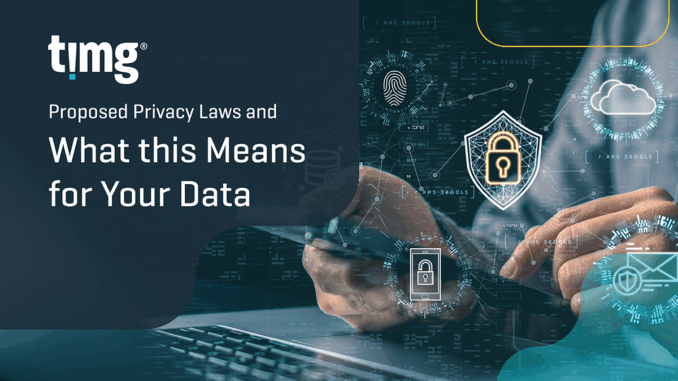
Privacy laws are undergoing rapid transformation, and the pace of change is not arbitrary—it’s a direct response to the evolving digital landscape and the growing complexity of data ecosystems. As businesses collect, analyze, and monetize personal information at unprecedented scales, governments around the world are racing to keep up. The shift is driven by a convergence of factors: technological innovation, rising consumer awareness, high-profile data breaches, and geopolitical tensions. Together, these forces are reshaping the regulatory environment, compelling organizations to rethink how they handle data and what it means to operate responsibly in a data-driven economy.
One of the most significant catalysts for change is the sheer volume and granularity of data being generated. From mobile apps and smart devices to biometric systems and AI-powered platforms, personal data is no longer limited to names and email addresses. It now includes behavioral patterns, location history, health metrics, and even emotional responses. This expansion has made traditional privacy frameworks obsolete. Laws that were designed for static databases and manual record-keeping are ill-equipped to address the dynamic, real-time nature of modern data flows. Regulators are responding by crafting legislation that reflects the realities of today’s digital infrastructure, emphasizing transparency, accountability, and user control.
Consumer expectations have also shifted dramatically. People are more aware than ever of how their data is used, and they’re demanding greater protection and autonomy. The rise of privacy-focused movements and digital rights advocacy has put pressure on lawmakers to act. When users discover that their personal information has been sold, shared, or exploited without consent, the backlash can be swift and severe. Businesses that fail to respect privacy risk not only legal penalties but also reputational damage and loss of customer trust. In this climate, privacy is no longer a compliance checkbox—it’s a strategic imperative. Companies that prioritize ethical data practices are better positioned to build loyalty and differentiate themselves in crowded markets.
High-profile incidents have further accelerated the urgency for reform. Data breaches affecting millions of users, revelations about surveillance programs, and scandals involving misuse of personal information have made privacy a headline issue. These events serve as wake-up calls, exposing vulnerabilities and prompting governments to tighten regulations. For example, the introduction of the General Data Protection Regulation (GDPR) in the European Union set a new global benchmark, influencing legislation in countries from Brazil to Japan. More recently, the emergence of laws like the California Consumer Privacy Act (CCPA) and its successor, the CPRA, signal a growing trend toward regional privacy frameworks that reflect local values and priorities.
Geopolitical dynamics are also shaping the evolution of privacy laws. As data becomes a strategic asset, nations are increasingly concerned about sovereignty and security. Cross-border data transfers, foreign surveillance, and the dominance of global tech platforms have raised questions about who controls information and how it should be governed. In response, some countries are implementing data localization requirements, mandating that certain types of data be stored and processed within national borders. Others are negotiating international agreements to harmonize standards and facilitate cooperation. These developments reflect a broader recognition that privacy is not just a legal issue—it’s a matter of national interest and global diplomacy.
Technology itself is both a driver and a disruptor in this space. Innovations like artificial intelligence, machine learning, and blockchain are challenging traditional notions of privacy and consent. AI systems can infer sensitive information from seemingly innocuous data, while decentralized platforms complicate the enforcement of regulations. At the same time, technology offers new tools for privacy protection, such as differential privacy, homomorphic encryption, and secure multi-party computation. Regulators are grappling with how to encourage innovation while safeguarding individual rights. This balancing act requires ongoing dialogue between policymakers, technologists, and industry leaders to ensure that laws remain relevant and effective.
For businesses, the changing regulatory landscape presents both risks and opportunities. Navigating multiple privacy regimes can be complex, especially for global organizations operating across jurisdictions. Compliance requires investment in legal expertise, data governance, and technical infrastructure. But it also opens the door to innovation. Companies that embed privacy into product design, adopt privacy-by-default principles, and engage transparently with users can turn regulation into a competitive advantage. They can build systems that are not only compliant but also resilient, adaptable, and aligned with consumer values.
Education and culture play a crucial role in this transition. Organizations must foster a mindset where privacy is everyone’s responsibility—not just the domain of legal or IT departments. This involves training employees, updating policies, and creating feedback loops that surface concerns and drive continuous improvement. It also means engaging with stakeholders, including customers, regulators, and civil society, to understand evolving expectations and co-create solutions. In this way, privacy becomes a shared value, embedded in the DNA of the business rather than bolted on as an afterthought.
Ultimately, the rapid evolution of privacy laws reflects a deeper shift in how society views data. It’s a recognition that personal information is not just a commodity—it’s an extension of identity, autonomy, and dignity. As digital technologies continue to permeate every aspect of life, the need for robust, adaptive, and principled privacy frameworks will only grow. Businesses that embrace this reality, not just in policy but in practice, will be better equipped to thrive in a world where trust is the currency of success. The question is not whether privacy laws will continue to change, but how quickly organizations can evolve to meet them.